Adil Najam and Owais Mughal
As a salute to what they have gone through in 2010 and in prayers for how the events of 2010 will influence their – and thereby our – futures, we at All Things Pakistan feel that a most worthy choice for the Pakistan Person of the Year 2010 are the children of the great floods of 2010.
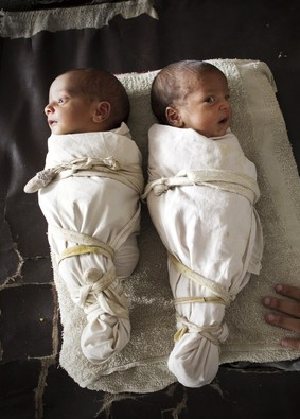 On August 14, 2010, we had dedicated our Independence Day post to twins Abdullah Khan (L) and Mohammad Bilal (R) born to Bushra Humayoun at a college converted to a camp for flood survivors by the army on the outskirts of Nowshera on August 12, 2010. As an ‘Azadi’ gift, we had offered them this prayer: “May you prosper, dear Abdullah and Bilal. May you live long and fruitful lives. May you never see again a tumultuous calamity like the one you were born in the midst of.” Today, at the turn of the year, we extend the prayer to all the children of the floods of the 2010. We repeat what we had written in that post: “May your generation make more of it than our generation – or that of our parents – did.” No face represents the reality of Pakistan in 2010 or the impacts of 2010 on Pakistan’s future greater than the faces of the children of the great floods of 2010. It is the faces of the children of the floods of 2010 that represent for us the Pakistan person of the Year 2010, as well as the best hopes for Pakistan’s future.
On August 14, 2010, we had dedicated our Independence Day post to twins Abdullah Khan (L) and Mohammad Bilal (R) born to Bushra Humayoun at a college converted to a camp for flood survivors by the army on the outskirts of Nowshera on August 12, 2010. As an ‘Azadi’ gift, we had offered them this prayer: “May you prosper, dear Abdullah and Bilal. May you live long and fruitful lives. May you never see again a tumultuous calamity like the one you were born in the midst of.” Today, at the turn of the year, we extend the prayer to all the children of the floods of the 2010. We repeat what we had written in that post: “May your generation make more of it than our generation – or that of our parents – did.” No face represents the reality of Pakistan in 2010 or the impacts of 2010 on Pakistan’s future greater than the faces of the children of the great floods of 2010. It is the faces of the children of the floods of 2010 that represent for us the Pakistan person of the Year 2010, as well as the best hopes for Pakistan’s future.
Last year we had named the Pakistani policeman as the ATP Person of the Year 2009 and had requested our readers to say ‘thank you’ to a Pakistani policeman. Very much in the same spirit, we choose a representation of the ordinary Pakistani citizen rather than a celebrity, a politician or a glitterati. Very much in the same spirit, we request you our readers to look out for the interests of these children of the 2010 floods. These are not just the children of the floods. These are all our children. And all their futures are our futures. The floods might have receded, but their lives are still defined by the floods and will be defined by them for many years and decades. Let us not let them drown in the vulgarity of false benevolence and grievance, which can often be as fleeting as it is false. Let us embrace them, not in charity but in brotherhood, to repeat what we wrote back in September 2010:
At the very point when the flood victim’s biggest loss is their loss of dignity – that is what homelessness and helpnessness is really about – we choose to put their indignity on display in this most vulgar manner. Indeed, we add to that indignity by turning what were self-respecting citizens till a few weeks ago into groveling serfs and beggars.
Yes, aid provisions can come from sources and motivations that are charitable. But the provision of aid must never be at the cost of the dignity of those we are supposedly aiding. These are people who have lost nearly everything already. Let us not rob them of their dignity too. You do not treat or talk about them as if they were beggars and you doling out your largess to them.
They are not beggars and they must not be made to feel like beggars. These are citizens. They were the pillars of your economy yesterday, and they will define your future tomorrow. In a society where entitlement is already a disease of the powerful, do not make begging the affliction of the weak. They need, deserve and have a right to our generosity. But because it is the duty of the state and of society to assist them.
The story we need to be writing today is the story of institutions of state and society fulfilling their duty. The story that the children of these flood victims need to tell to their own children tomorrow is a story told by citizens of how state and society rose up for them in their time of need. Instead we (leaders, media and individuals alike) are writing a story of vulgar benevolence and entrenched grievance. A story that will told in the language of servitude, in the language of abandonment by state and society, in the language of beggars.
No nation can ever survive that story.
We choose the faces of the children of the Great Floods of 2010 as the Pakistan person of the Year 2010 because these are the faces that will define tomorrow’s Pakistan. The children who have lived and grown up in the camps of the 2005 earthquake, in the tents of the IDP campments, in the relief lots of the floods of 2010 – these are the children that will define tomorrow’s Pakistan. The earnest and deep memories they will take with them from these formative experiences will not just impact, but actually shape their view of the world, of society, of us, of their relationship with each other and with Pakistan. And from those memories and imprints will emerge whatever Pakistan is to emerge in the future. After all, Ghar Tou Akhir Apna Hai:
What we had written about the children of the IDP camps in 2009, is still true of them and of the millions more than joined them in the devastating floods of 2010:
The memories, impressions, experiences, stories, scars, smiles, and worldviews that are being fostered as you read these lines … will define not only the future of these children, but possibly the future of Pakistan itself. Will these be memories of neglect and disdain and of a world and country who ignored their needs? Or will these be memories of a community and a country coming together as one to respond to these needs? The answer will not only define the future of hundreds of thousands of children, but of a nation itself.
We Pakistanis must also recognize the power of this moment. But our message cannot simply mirror that of our enemies. Our message must be the message of hope, of possibility, of Pakistaniat, of unity, of humaneness and of humanity, of coming together and of rising as one. But, ultimately, no message can resonate simply because of the strategic imperative of the moment; the power of the word derives only from the content of the action that accompanies the word. History shall judge us all, not just by what we say in this moment of need. But what we do in this moment of need.
We have the ability to shape what these memories and imprints are. Indeed, we have the responsibility to do so. And for all these reasons, and more, the children of the great floods of 2010 are the Pakistan Person of the Year 2010.
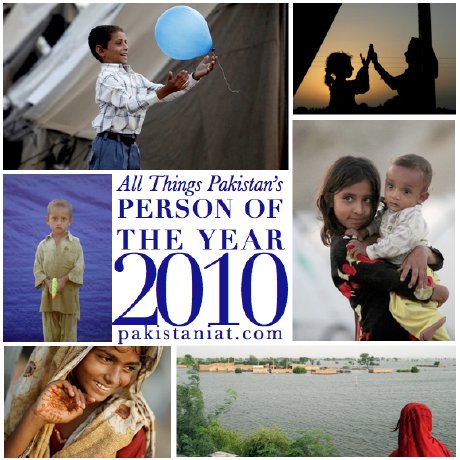
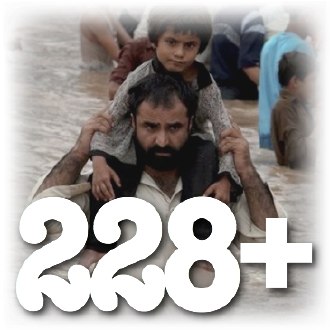
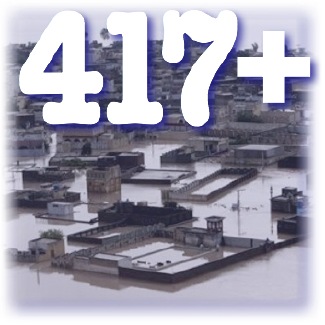
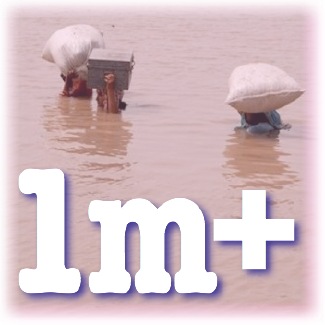
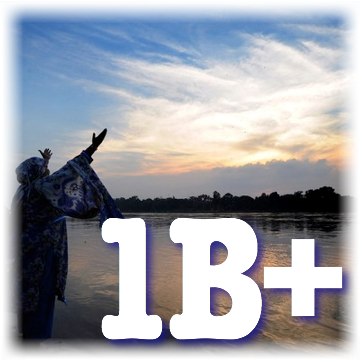
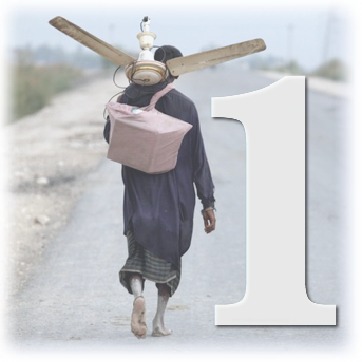
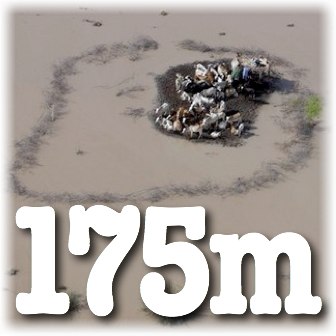



















































hello this is a good article
Good selection and strong post. ATP’s work on the floods has been absolutely first rate and I am glad you have kept us awake on this situation even when all others have fallen silent.
When I read the title of this blog, I though you will say Person of the year is Rehman Malik. :)
Excellent post and excellent choice. Very moving selection. Could not possibly have been a better selection.